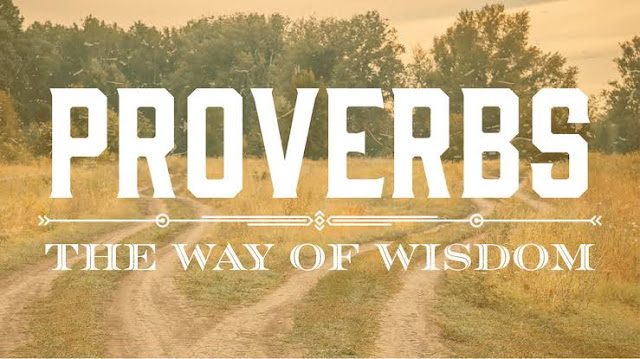
Showing posts with label happiness. Show all posts
Showing posts with label happiness. Show all posts
Monday, November 25, 2019
Saturday, July 25, 2015
20 Quotes from the Ancient Scriptures of Hinduism
20 Quotes from the Ancient Scriptures of Hinduism
1
Most humbly we bow to You, O Supreme Lord.
At Your command moves the mighty wheel of time.
You are eternal, and beyond eternity.
(Artharva Veda)
2
The one who loves all intensely
begins perceiving in all living beings
a part of himself.
He becomes a lover of all,
a part and parcel of the Universal Joy.
He flows with the stream of happiness,
and is enriched by each soul.
(Yajur Veda)
3
The human body is the temple of God.
One who kindles the light of awareness within
gets true light.
The sacred flame of your inner shrine
is constantly bright.
The experience of unity
is the fulfillment of human endeavors.
The mysteries of life are revealed.
(Rig Veda)
4
Sing the song of celestial love, O singer!
May the divine fountain of eternal grace and joy
enter your soul.
May Brahma, (the Divine One),
Pluck the strings of your inner soul
with His celestial fingers,
And feel His own presence within.
Bless us with a divine voice
That we may tune the harp-strings of our life
To sing songs of Love to you.
(Rig Veda)
5
Of everything he is the inmost Self.
He is the truth; he is the Self supreme.
(Chandogya Upanishad)
6
Meditating on the lotus of your heart,
in the center is the untainted;
the exquisitely pure, clear, and sorrowless;
the inconceivable;
the unmanifest,
of infinite form;
blissful, tranquil, immortal;
the womb of Brahma.
(Kaivalyopanishad)
7
Those in whose hearts OM reverberates
Unceasingly are indeed blessed
And deeply loved as one who is the Self.
The all-knowing Self was never born,
Nor will it die. Beyond cause and effect,
This Self is eternal and immutable.
When the body dies, the Self does not die.
(Katha Upanishad)
8
The whole mantram AUM
Indivisible, interdependent,
Goes on reverberating in the mind.
Established in this cosmic vibration,
The sage goes beyond fear, decay, and death
To enter into infinite peace.
(Prashna Upanishad)
9
O Almighty!
You are the infinite; the universe is also infinite!
From infinite the infinite has come out!
Having taken infinite out of the infinite, the infinite remains!
O Almighty! May there be Peace! Peace! Everywhere!
(Ishawashya Upanishad)
10
O seeker, know the true nature of your soul,
and identify yourself with it completely.
O Lord, (may we attain) the everlasting consciousness
of Supreme Light and Joy.
May we resolve to dedicate our life
to the service of humankind,
and uplift them to Divinity.
(Yajur Veda)
11
O Brahma, lead us from the unreal to the real.
O Brahma, lead us from darkness to light.
O Brahma, lead us from death to immortality.
Shanti, Shanti, Shanti, Om.
(Brhadaranyaka Upanishad)
12
Look to this day,
for it is life, the very breath of life.
In its brief course lie
all the realities of your existence;
the bliss of growth,
the glory of action,
the splendor of beauty.
For yesterday is only a dream,
and tomorrow is but a vision.
But today, well lived,
makes every yesterday a dream of happiness,
and every tomorrow
a vision of hope.
Look well, therefore, to this day.
(Ancient Sanskrit)
13
The highest Self, all endless bliss,
the unconditioned limitless consciousness,
being realized, whether through the great texts,
or through Yoga, in all experience whatever—
let one lose himself in the ecstasy of Realization,
for he has forever lost all touch
with bondage of every description.
(Svarajyasiddhi)
14
A particle of Its bliss
supplies the bliss of the whole universe.
Everything becomes enlightened in Its light.
All else appears worthless after a sight of that essence.
I am indeed of this Supreme Eternal Self.
(Vijnanananka)
15
The knower catches in the ecstasy of his heart
the full light of that Brahman (that Divine Essence)
which is indescribable—all pure bliss, incomparable,
transcending time, ever free, beyond desire.
(Vivekachudamani)
16
Bright but hidden, the Self dwells in the heart.
Everything that moves, breathes, opens, and closes
Lives in the Self. He is the source of love
And may be known through love but not through thought
He is the goal of life. Attain this goal!
(Mundaka Upanishad)
17
All is change in the world of the senses,
But changeless is the supreme Lord of Love.
Meditate on him, be absorbed by him,
Wake up from this dream of separateness.
(Shvetashvatara Upanishad)
18
O mysterious and incomprehensible Spirit!
In the depths of my heart, there is only You—You, for all time.
(source unknown)
Labels:
ancient scriptures,
artharva veda,
chandogya upanishad,
enriched soul,
eternal,
God,
happiness,
Heart,
hinduism,
human body,
inner shrine,
light,
lord,
Love,
love to you,
quotes,
rig veda,
spirit,
true light,
yajur veda









































